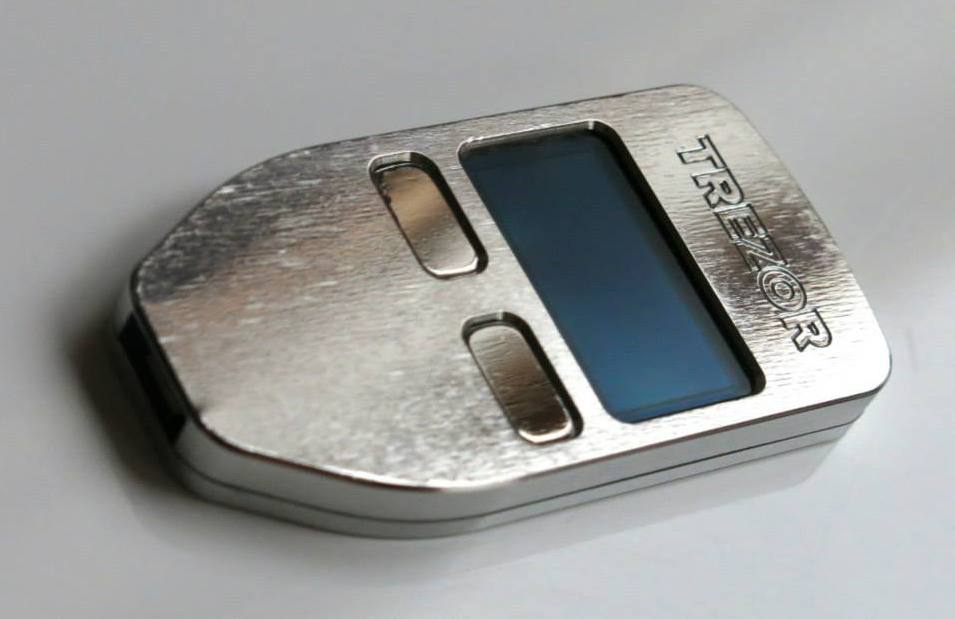
Trezor to Ship Physical Bitcoin Wallets in January
Hardware wallet manufacturer Trezor has confirmed it will deliver its first batch of wallets next month, following a successful crowdfunding campaign that began in June.
Trezor had previously promised to deliver its first orders in October, but delayed the fulfillment date to January after deciding to add more features.
Pavol Rusnak, Trezor's co-founder, revealed that pre-orders are now closed.
Rusnak and co-founder Marek Palatinus initially attempted to fund the development of their hardware wallet with a Kickstarter campaign. However, the duo abandoned the crowdfunding platform after "long delays in communication" with Kickstarter and "additional conditions" imposed on the project's page, according to a Trezor blog post.
Instead, the pair decided to solicit funds from the bitcoin community directly, via posting on reddit and other community sites.
On 21st November, a Trezor blog post announced that "most of the initial costs" had been covered by "hundreds of enthusiasts". Rusnak wouldn't give an exact figure on how much has been raised, nor how many people have contributed; adding only that the amount was "enough to cover mass production costs".
Pricing controversy
Trezor offered bitcoin enthusiasts two ways of supporting its crowdfunding campaign. Supporters could either pay 1 BTC for a standard Trezor unit with a plastic casing, or pay triple the price for the aluminium-clad metallic option.
As bitcoin's value has soared in the past two months, users have begun to question the wisdom of Trezor pricing its pre-orders in the cryptocurrency.

Trezor 'Metallic' Model
According to Mt Gox, a Trezor pre-order was worth, on average, $100 (US dollars) during the device's crowdfunding campaign period. However, bitcoin's value began to climb steeply in mid-October.
By the end of November, 1 BTC was worth around $1,100 (or more than 10 times the initial value) according to the CoinDesk BPI. Thus, a Trezor pre-order would cost either $1,100 or $3,300.
As a result, some redditors have expressed their discontent with Trezor's price. One user, for example, posted:
Another redditor posted:
In response, Rusnak dismissed these comments as "misguided". When asked if he regretted setting pre-order prices at a flat bitcoin-denominated value, he replied: "No."
Trezor previously stated that it would price its pre-orders in bitcoin to support the bitcoin economy. He added: “You don't see people complaining on Kickstarter that they want their money back with interest."
Rusnak also said that his firm's decision to end the crowdfunding campaign came in response to complaints about Trezor's price. He added:
Rusnak added that "almost all" the currency his firm collected from crowdfunding was "immediately" changed to fiat currency to pay for production costs.
Trezor alternatives
Trezor is the latest nascent hardware wallet designed for the bitcoin community. However, as it stands, hardware wallets are not in common use.
One benefit of a hardware wallet is the fact that it isn't connected to the internet, thus greatly reducing its exposure to potential malefactors.
Redditors have suggested the YubiKey Neo as Trezor's best alternative. The YubiKey Neo is a contactless authentication key which redditors claim can be programmed to offer the same functionality as Trezor.
Rusnak and Palatinus also run several other well-known bitcoin projects. Rusnak started CoinMap, a crowdsourced map of real-world merchants who accept bitcoin payments.
Palatinus runs Slush's Pool, a bitcoin mining 'pool' that lets users work together to mine bitcoins and distribute the proceeds among themselves.
Rusnak said that he and Palatinus are in the process of forming a new company, SatoshiLabs, that will act as an umbrella organisation for all their bitcoin projects, including Trezor, Slush's Pool and CoinMap.
SatoshiLabs would also offer consulting services, Rusnak said.
DISCLOSURE
The leader in news and information on cryptocurrency, digital assets and the future of money, CoinDesk is a media outlet that strives for the highest journalistic standards and abides by a strict set of editorial policies. CoinDesk is an independent operating subsidiary of Digital Currency Group, which invests in cryptocurrencies and blockchain startups. As part of their compensation, certain CoinDesk employees, including editorial employees, may receive exposure to DCG equity in the form of stock appreciation rights, which vest over a multi-year period. CoinDesk journalists are not allowed to purchase stock outright in DCG.


